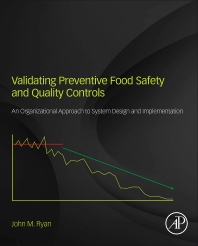The Plant Based Foods Association, San Francisco, published an economic analysis of the industry’s contribution to the nation’s jobs, sales output and tax base. The report estimates that the $4.9 billion plant-based food industry creates more than 60,000 jobs that pay a total of $3.6 billion in income each year.
Incomes in the plant-based foods sector average $59,400, which is about $13,000 higher than the average U.S. income, according to report author Jon Haveman, principle of Marin Economic Consulting, Marin County, Calif.
“The plant-based foods industry is a fast-growing industry creating good, high-paying jobs," says Haveman.
The report also estimates that the plant-based food industry will add more than 2,000 jobs to the economy each year in accordance to the current rate of growth.
Economic activity in the plant-based foods industry also leads to sales of $13.7 billion a year throughout the U.S. economy. In addition, the analysis estimates that plant-based food companies pay $1.1 billion in federal and state taxes each year, which represents 20% of the industry’s revenues. The report predicts that at current growth rates, the plant-based food sector will generate $13.3 billion in tax revenues over the next 10 years.
“This new data, combined with recent environmental research showing that meat substitutes produce 10 times fewer greenhouse gas emissions than similar beef products, points to why public policies should support the growing plant-based foods industry,” says Michele Simon, executive director of the Plant Based Foods Association. “Plant-based foods are not only great for the nation's economic health, [but] they're [also] better for your own health and have a lighter environmental footprint.”
Methods
The $4.9 billion revenue figure was used to generate all the economic estimates in this report, using the 2016 IMPLAN model, an industry standard economic modelling system for estimating the economic impact of a given industry sector. The plant-based foods industry falls into the category of “other food manufacturing” in the IMPLAN model, so all data is representative of that larger category.






